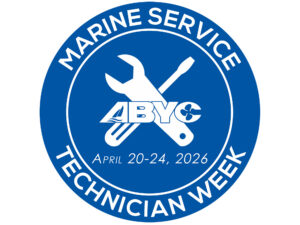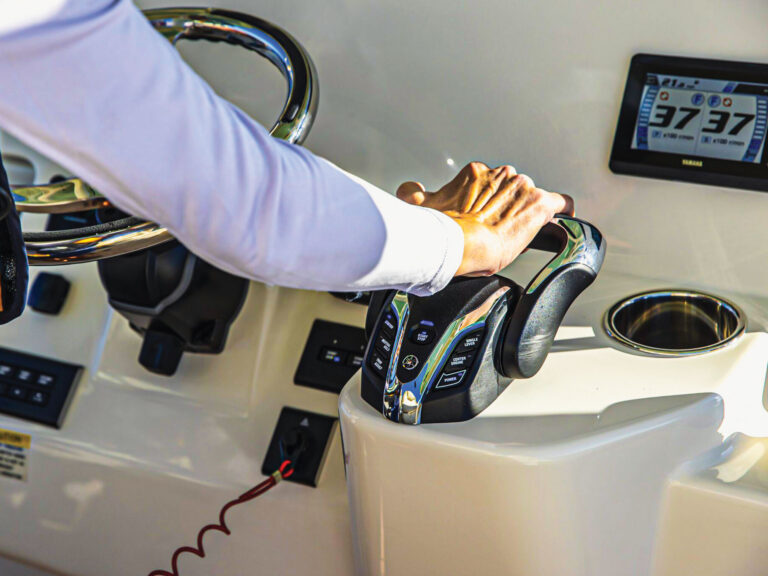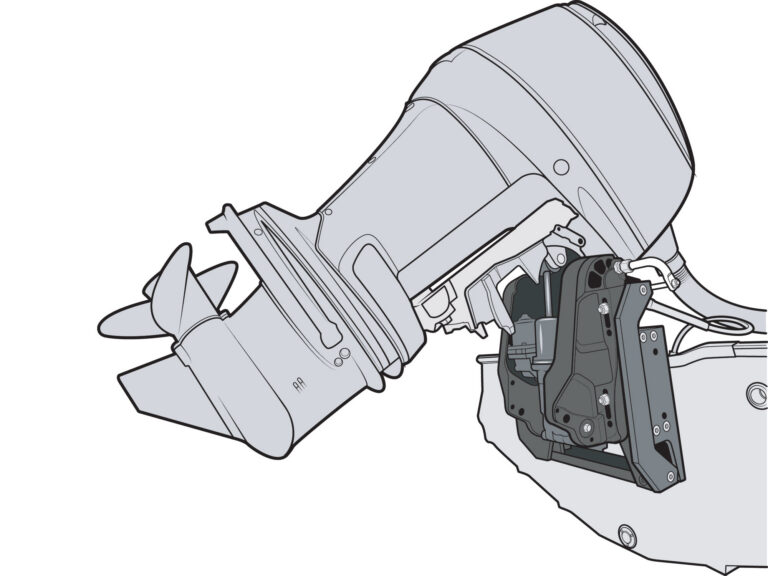
ReGen Nautic’s e180 powering a Campion runabout
With high-performance electric cars now a reality—witness the Mercedes SLS AMG 750 hp Electric Coupe—can high-performance electric outboards be far behind?
Well, they’re already here, according to Pierre Caouette, president and CEO of ReGen Nautic based in Dania Beach, Florida, which builds electric outboards up to… wait for it… 300 hp.
That’s not a typo. Three-hundred ponies is a whopping jump from the 75 hp Deep Blue – the most powerful model from arguably today’s best-known electric outboard brand, Torqueedo.
So how did ReGen Nautic make the leap to hyper-power in electric outboards? The company has partnered with UQM Technologies, a Denver-based developer and manufacturers of brushless, power-dense, high-efficiency electric motors, as well as electronic controllers, for commercial and passenger vehicles.
ReGen Nautic has been adapting electric motors for marine applications since 2010, with much of its business focused on hybrid applications in the commercial, military and yacht markets, with power demands far exceeding those for outboard boats.
So when ReGen Nautic decided to create the most powerful electric outboards ranging from 135 to 300 hp, it was a matter of converting this technology into smaller packages. Easier said than done, but ReGen Nautic achieved its goal by replacing the gas powerheads on existing outboards with UQM motors.
That’s an oversimplification of the retrofit process, yet to look to look at ReGen Nautic’s e180 electric outboard—which was on display at the recent Miami International Boat Show—with the cowl in place, you’d be hard pressed to discern a difference between it and the Yamaha 150 outboard that was used for the conversion.
ReGen’s e180 generates a maximum of 180 hp (continuous 100 hp) and 250 ft.-lb. of torque using 400VDC. The motor weighs 413 pounds—78 pounds less than the gas outboard it’s based on, Caouette says.
Yet, here are the big questions on every boater’s mind: How many friggin’ batteries am I going to need? And what kind of range can I realistically expect?
According to Caouette, for the e180, you’ll need at least four lithium-ion 6kWh batteries, which weigh about 100 pounds each. In terms of retail price, Caouette says there’s not much difference between these and equivalent lead-acid batteries, though our online research indicates astronomical pricing for 24kWh replacement lithium-ion battery packages in the electric auto market.
On ReGen’s price sheet, the upcharge for the recommended 28.8kWh battery system for the e180 is $24,599. Now that’s pretty steep just for batteries, but it also includes a battery management system, needed to regulate the voltage and temperature of each cell.
The good news is that these batteries can be drained up 80 percent of their capacity, and are capable of as many 4,000 recharge cycles. Also, when you actually go boating, the cost of operation is substantially less than with gasoline power, Caouette says. “For an hour of operating an e180, it costs about $2 in electricity,” explains Caouette, who cites a $60/hour operating price for an equivalent gas outboard.
What about range? Caouette was reticent to speculate, as much depends on the weight of the boat, style of the hull, throttle settings and sea conditions, no matter which of the ReGen Nautic outboards power the boat. However, Caouette says that discussions regarding range become less relevant when you understand how the company believes electric outboards are best employed. “We envision boats with onboard generators that recharge the batteries when they get low,” he explains. “Generators consume far less fuel than a gas outboard, so there will still be significant savings.”
OK, maybe, but what size generator are you going to need? Caoutte says a “small generator,” but I doubt that a compact Honda 1kW portable generator can even come close to keeping up to replacing the juice sucked down by the 400-volt e180 at planing speeds. I believe you’re going to need to a big, heavy, expensive generator, not to mention a charging module that ReGen retails for $2,094. So I question the viability of electric outboards as alternatives to gas outboards for anything but relatively short runs between dockside charging stations. Even at that, you’re looking at a damn expensive propulsion choice. ReGen Nautic’s e180 retails for $35,129, without the battery system, or $59,688 complete. As a point of comparison, the MSRP for Yamaha’s F200 is $17,895.
I asked Caouette where he thought electric marine power will be 10 years from now. He quickly answered, “Everybody will have electric outboards.” That’s a bold statement. “I don’t think so,” he confidently shot back. Time will tell.
For more on electric-powered boats, visit boatingmag.com/electric-ski-boat.








